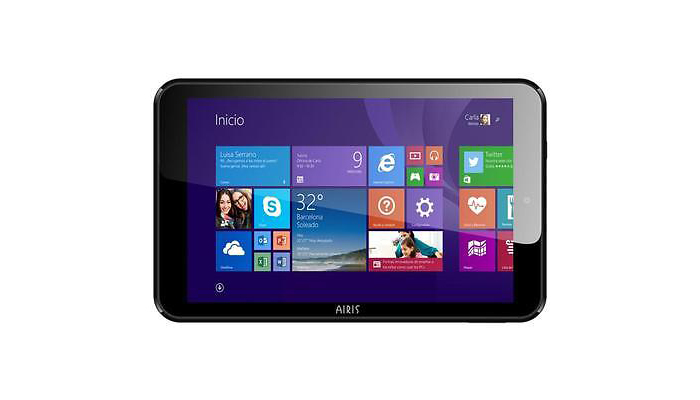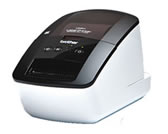This article explain how to create a booteable USB stick to flash an EFI flasheable file under DOS enviroment.
Is my EFI InsydeH2O?
The easiest way to figure that is looking on the 'BIOS POST Screen' for this image:
Free scan for the official airis n729 driver - compatible with windows 10, 8, 7, vista & xp, using driver assist. Download airis n990 vga driver graphics board airis has been a subsidiary of infinity systems spanish multinational, dedicated to reaserching, manufacturing and distributing it&c products and consumer electronics ever since 1998. Warning: include(./common.php): failed to open stream: No such file or directory in /usr/home/hispatablets.com/web/viewtopic.php on line 17 Warning: include(./common.
Step 0 - Preparing the work enviroment
- You must create a folder on your desktop to use it as workspace. I will use one named 'Toolbox'.
- Your current Windows user account must have administrator rights.
- You must have the Windows based executable file that contains the EFI flasheable file. If you don't have one, enter to Support Website page and get one for your computer. I will use one named 'EFIUPDATEPACKAGE.EXE'.
- Step 0 done.

Step 1 - Preparing working tools
- Download and install 7-Zip.
- Download 'HP USB Disk Storage Format Tool' here. Save this file inside 'Toolbox' folder.
- Download 'DOS Files' here. Save this file inside 'Toolbox' folder.
- Download 'Flash It Tool' here. Save this file inside 'Toolbox' folder.
- Extract files downloaded in 2, 3 and 4. A folder will be created for each extracted ZIP file.
- Step 1 done.
Step 2 - Creating a booteable USB stick

- Connect your USB stick. Make a backup of it contents if necessary.
- Open 'HP USB Disk Storage Format Tool' folder and execute 'HPUSBFW.EXE' with administrator rights.
- Follow these easy steps as shown below:
- Search and select 'DOS Files' folder:
- Click on 'Accept' button and then click on 'Start' button to initiate the process.
- A warning window appears. Click on 'Yes' button and wait until the entire process is completed.
- Click on 'Accept' button to close the summary window and then click on 'Close' button to close the application.
- Step 2 done.
Step 3 - Copying the flashing tool
- Open 'Flash It Tool' folder.
- Select all files and copy them to the root directory of your USB stick.
- Step 3 done.
Step 4 - Extracting the Windows based EFI update package
- Copy 'EFIUPDATEPACKAGE.EXE' file to your 'Toolbox' folder.
- Secondary click (left click) on 'EFIUPDATEPACKAGE.EXE'.
- Select '7-Zip', then select 'Extract to 'EFIUPDATEPACKAGE'.
- A new folder named 'EFIUPDATEPACKAGE' will be created with files inside.
- Open 'EFIUPDATEPACKAGE' folder and open 'platform.ini' file. It's important to keep this file open.
- Step 4 done.
Step 5 - Finding the flasheable EFI file
- In 'platform.ini' file, search for the section called '[FDFile]'.
- Look for the 'FileName' attribute. This attribute sets the flasheable EFI file name.
- Look inside your 'EFIUPDATEPACKAGE' folder for that file, and rename it to 'FLASHME.ROM'.
- Copy 'FLASHME.ROM' file to the root directory of your USB stick.
- Step 5 done.
Step 6 - Setting the computer platform
- Look inside your USB stick and open the 'IDS.id' file with a plain text editor (notepad is enough).
- In 'platform.ini' file, search for the section called '[Platform_Check]'.
- Copy each 'PlatformName' attribute (only if it have a non-empty value) to 'IDS.id' file.
- Saves changes to IDS.id file.
- Step 6 done.

Step 7 - Finishing
- Close all files and folders opened.
- Remove securely your USB stick.
- Step 7 done.
Appendix A - Flash It Tool parameters established
/U /S /G /V /ALL /PMCAF:IDS.id
Appendix B - Flash It Tool parameters
| Parameter | Information |
| /U | Show confirm message |
| /N | Do not reboot after flash |
| /S | Shutdown after flash |
| /G | Save current BIOS to file |
| /AC | Do not check AC plug in |
| /AB | Check battery life percent |
| /MC | Skip all platform model check |
| /PQ | Query ROM protection MAP in current ROM |
| /I:String | Update logo (need Himem.sys) |
| /O:String | Output file (Must use with /I) |
| /LG:String | Logo GUID; update small logo required (must use with /I) |
| /B | Flash PEI volume |
| /ALL | Flash all |
| /E: Offset(Hex), Size(Hex), Address(Hex) | Update fix size from file offset to physical address |
| /FM | Flash CPU Microcode |
| /FV | Flash Variable |
| /FD | Flash DXE |
| /FE | Flash EC |
| /FL | Flash logo |
| /FP | Flash password |
| /FN | Flash OEM NVS |
| /FT:value | Flash OEM special type |
| /LF | Load Fd file by another floopy disk |
| /C | Clear CMOS |
| /PS | Flash SPI flash part |
| /PN | Flash non-SPI flash part |
| /V | Verify file integrity |
| /RV | Read variable |
| /WV:String | Write variable to new string |
| /WU:String | Write variable (UNICODE) |
| /1 | Save current BIOS to file (1Mbits from memory) |
| /2 | Save current BIOS to file (2Mbits from memory) |
| /4 | Save current BIOS to file (4Mbits from memory) |
| /8 | Save current BIOS to file (8Mbits from memory) |
| /DI | Disable ID display |
| /RB:Filename | Read variable (to a binary file) |
| /WB:Filename | Write variable (from a binary file) |
| /UU:String | Compare UUID with current BIOS |
| /SE:String | Compare serial number with current BIOS |
| /GU:String | Compare GUID with current BIOS |
| /PMCA:ModelName | Used to check Platform model name |
| /PMCAF:FileName | Used to check Platform model name inside FileName |
WindPad 110W Specs
Our WindPad 110W review unit comes equipped with an AMD Z-01 dual-core Fusion processor. Codenamed 'Desna,' the Z-01 is part of the Brazos mobile processor series which is based on the 40nm Bobcat architecture. Although Z-01 features the same core, cache and graphics configuration as the Iconia Tab W500's C-50 'Ontario' chip, its TDP has been slashed by 34%.
In addition to offering power savings over AMD's other solutions, the Z-01 packs a significant advantage over anything Intel currently offers: the 276MHz Radeon HD 6250. The ViewSonic ViewPad 10Pro's Atom Z670 'Lincroft' processor uses the Intel Graphics Media Accelerator (GMA) 600, which is comparatively slower than AMD's integrated engines.
As you can see on the pictures, the WindPad 110W like most other Windows tablets sports a fan to dissipate heat. I'm glad to report the fan almost never become active so it didn't bother me, otherwise we'd consider it a big annoyance compared to Android tablets and the iPad that rely on more austere hardware to fulfill their tasks.
MSI has equipped the WindPad 110W with 2GB of DDR3 memory with the ability to expand to 4GB. The company offers two models with 32GB or 64GB of internal flash storage. The former costs $600 but we have yet to confirm the price for the 64GB iteration. Additionally, users can expand the storage capacity using the SD/SDHC card reader.

The WindPad 110W also has a 1.3MP front camera for video chatting and another 1.3MP camera at the rear for taking photos -- the latter of which is underwhelming compared to what's offered with products such as the Asus Eee Pad Transformer. The picture quality is average and the same can be said about the video, which is blurry and looks washed out.
The 10.1' IPS LED-backlit display features a native resolution of 1280x800, has a scratch resistant plastic and supports 178-degree viewing angles.
Network connectivity is tackled by 802.11b/g/n Wi-Fi, which is accompanied by Bluetooth 2.1 + EDR (Enhanced Data Rate), which would be handy for a full-fledged hardware keyboard or mouse among other external wireless peripherals.
Airis WinPAD 71W Driver Download For Windows
The WindPad 110W is kept alive by a 31.08Wh Li-polymer battery, though the runtime is not specified, we'll just have to test that for ourselves.